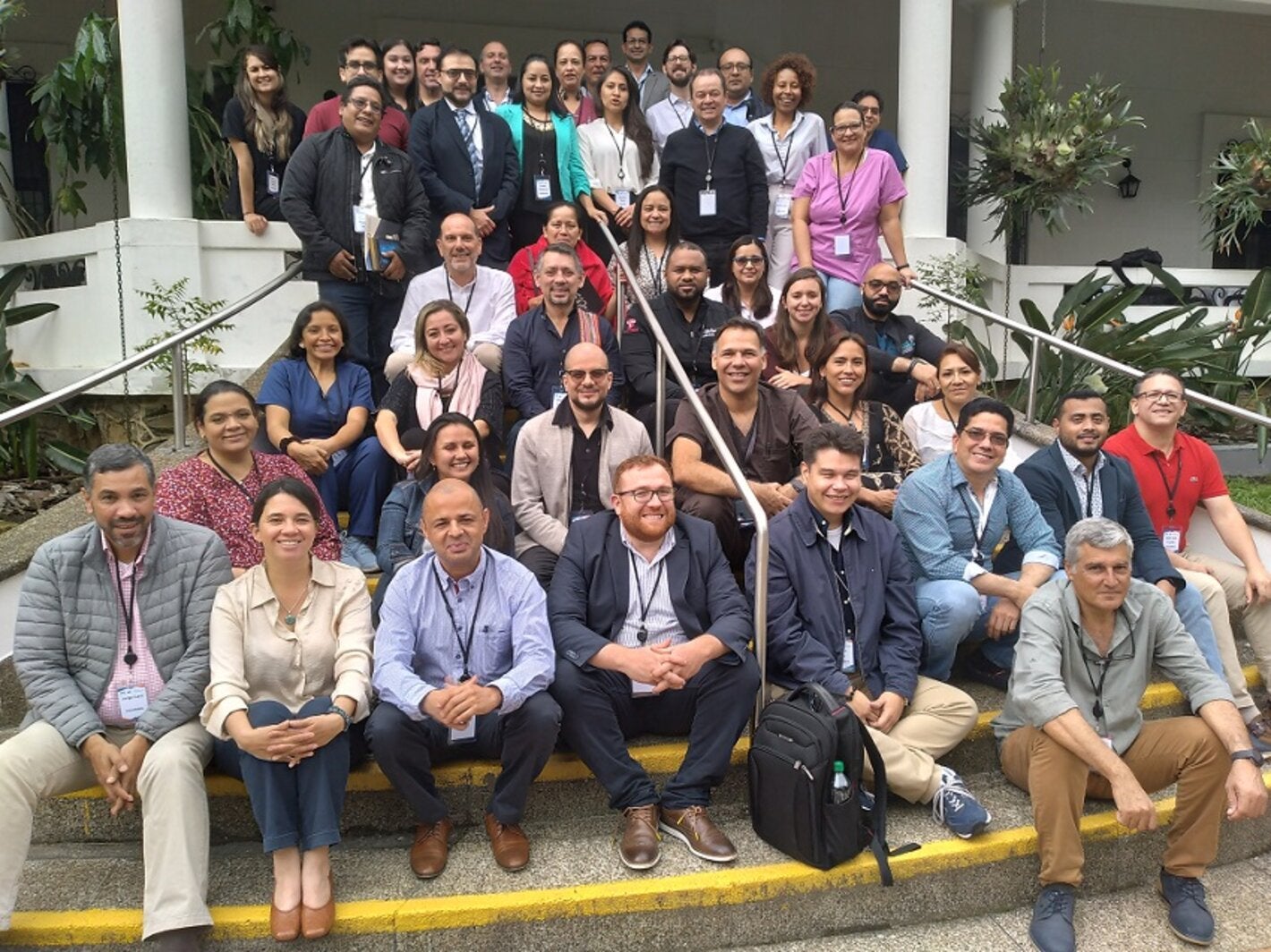
Montevideo, November 22, 2022. During the first training workshop for health professionals of the "Zero Maternal Deaths from Obstetric Emergencies" project, held on November 18 and 19 at CES University in Medellin, Colombia, several participants commented on their perceptions of the initiative and the challenges that may arise.
The objective of the workshop was to train medical and non-medical trainers in improving the quality of care in various obstetric emergencies, with the aim of consolidating teams to replicate the knowledge in the different countries of the region.
The consultant from Honduras, Melvin Chávez highlighted the high level of the trainers. "They are highly trained and apply the knowledge they are teaching. In addition, everything that has been presented is evidence-based. We are trying to incorporate all this knowledge to replicate it in our country."
Dr. Gloria González, also from Honduras, highlighted the relevance of having precise objectives. "It is very clear where they want to take us and what they want us to do. It is very clear what is intended with the workshops and they are of very good quality".
For her part, Freder Valladares, a nursing graduate from the same country, said she felt very motivated. "I leave thinking that there are things we have to change in the hospital to do them in a better way. It has been very interesting the exchange with referents from different countries. In addition, a lot of emphasis was placed on the assistants and nurses, and that is very important because teamwork implies organization and that should include all of us who are there and are part of that team and of that moment. As a nurse, I am committed to making that change".
Regarding the challenges, Chávez expressed that it is necessary to "generate change policies in the different institutions. Resistance can always arise when one proposes changes". He also pointed out that "there is a committed team and we are going to make our best effort to replicate what we have learned".
In this sense, González highlighted a phrase that came up in one of the modules and refers to "learning to unlearn". "With the tools that we are taking with us and with the group of facilitators that is waiting for us at home and we know that they will support us, I believe that we can make a good replication of the workshop. We hope they receive it as we did, with an open mind to implement the changes," she said.
From Bolivia, Dr. Zelma Yujgra, said that "It is a very entertaining course, very didactic. It has allowed us to understand many situations. We have deepened our knowledge and now we have a more adequate management to be able to carry out interventions in our health centers. It has been a wonderful experience.
Dr. Ángel Alcazar, from the same country, highlighted "the way in which each of the topics is presented, with the aim of learning how to teach other people".
Both referents from Bolivia stated that they felt they had acquired knowledge and, although they pointed out that they do not have the same infrastructure and supplies, they consider that they have the conditions to replicate.
Dr. José Cuello, from Colombia said "It has been an excellent workshop. It gives us the tools to consolidate theory with practice and also generates competencies to be able to carry out these life-saving activities. I consider it a great tool to replicate in our territory, especially where there are shortcomings in the management of these obstetric emergencies. I found all the stations excellent. I also highlight the innovation; today we are taking away new evidence-based information for clinical practice with better results and outcomes". Cuello, who is the leader of the gynecology area of the Julio Méndez Barreneche Hospital in Santa Marta, also said that "it is very gratifying to have this tool in order to transmit to other hospitals that are isolated and for whom this will be extremely important".
Finally, Dr. Mauricio Vasco, coordinator of Clinical Simulation of the CES University and teaching coordinator of the training, said that "It is a very relevant workshop. It brings together leaders from the prioritized countries with the need to have an impact on health and maternal mortality. There are people with teaching skills, leadership and the ability to replicate and have a positive impact. In addition, the simulation-based methodology has allowed the participants to have multiple ideas and tools that they can take back to their work sites for implementation, regardless of the conditions they have there".
For Vasco, "the objectives were achieved as planned, but we must also highlight the high emotional charge that the participants took away with them. The other very valuable thing is that the participants were decision-makers, people who have the capacity, in addition to the clinicians, to make changes in their regions. This will also greatly favor the implementation of the proposal".
Regarding the challenges, the coordinator said that "first we have to overcome traditional barriers of supplies, geographical barriers, barriers due to the lack of drugs, and many times there are regions that are not in a network. This workshop provides elements to be able to diagnose and stabilize certain patients, but it is necessary to form networks so that they can go to other places, because many times they are in rural populations with low resources and the patients have to be moved. It is important to have a network of care.
The activity was attended by more than 40 professionals from Bolivia, Colombia, Ecuador, El Salvador, Honduras, Guatemala, Peru, Dominican Republic and Uruguay. PAHO representatives from Colombia, Cuba and Mexico also participated.
This action is a CLAP/WR initiative developed within the framework of Canadian cooperation with PAHO and is also supported by FIGO.



